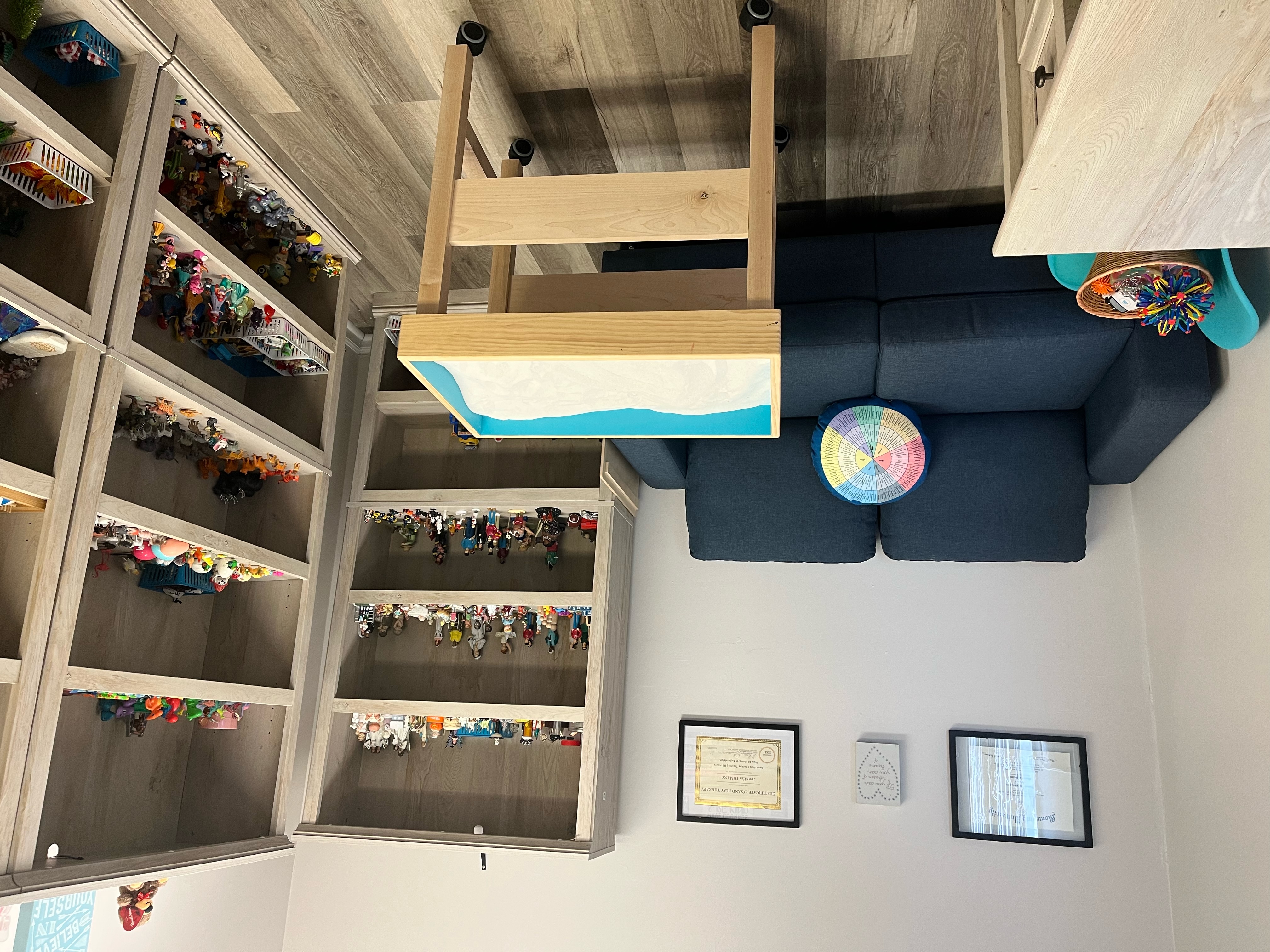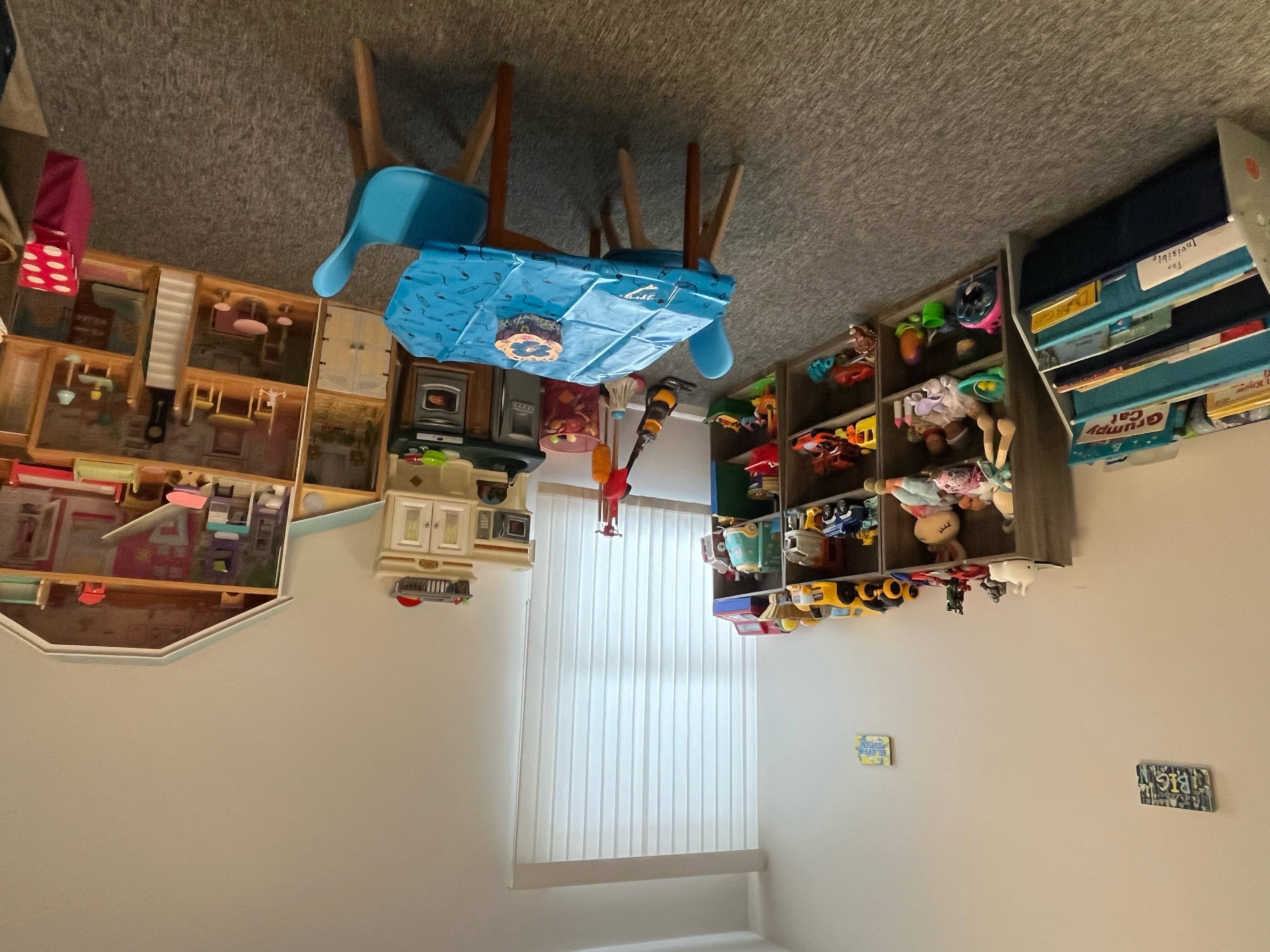

I Can... Is a counseling service specializing in children, adolescents, and young adults.
We provide in office therapy in Howell, NJ and tele-health throughout New Jersey, South Carolina, Florida, and Delaware.
Click here to schedule appointment today!



Jennifer DiMarco, MS, LPC
504 Aldrich Rd, Suite 2A
Howell, NJ 07731
(732)250- 3953
Play is a child’s way of expressing themself, learning, and healing. Therapists that utilize play based therapy assist young clients in addressing cognitive, behavioral, and emotional challenges. As a play based therapist, I am trained to recognize themes in play, promote co-/self-regulation, self-control, and mastery. The two styles of play based therapy include directive and non-directive. My style is a mixture of both, but as a Person-Centered therapist, I focus more on a non directive approach.
You may ask yourself, “Why can’t I just play with my child to help them heal?” The answer is that therapeutic play is very different than regular play. Therapeutic play requires a positive client-therapist relationship, which then allows for the young client to feel comfortable in playing out difficult issues. At times, the therapist may not be aware of what the child is processing and that is not necessary for healing and improvement to occur. Instead, you may find your child’s behavior and/or emotional concerns improve throughout the week.
Sand Tray therapy or Sandplay therapy is a non-verbal mode of therapy that allows clients of all ages to tap into their psyche and work through any trauma and/or wounds they possess. Your child will be able to utilize symbols (small figurines, rocks, stones, etc) within the Sand Tray to work through trauma and/or wounds from pre-verbal and unconscious parts of their brains. Sand Tray therapy was created by Dora Klaff in Switzerland and is based off of Dr. Margaret Lowenfeld’s “World Technique.” Ms. Klaff combined the “World Technique” and Carl Jung’s teachings to create Sand Tray therapy. It was first utilized in the 1950s. Ms. Klaff viewed the Sand Tray as a “free and protected space,” which allowed for deep layers of self-healing.
Sand Tray therapy can be very beneficial as an adjunct to talk therapy for those who have difficulty expressing their thought, feelings, and memories through spoken word. Developmentally, children learn and heal through play. Sand Tray therapy allows for children to work through their trauma and/or wounds through play in the Sand Tray. For adolescents and adults, Sand Tray therapy can be beneficial when spoken words are unable to assist in the healing process.
More information about Sand Tray therapy can be found on www.sandplay.org.
Individual talk therapy is beneficial for some older children and adolescents. Talk therapy typically consists of emotion exploration and regulation, psychoeducation, and acquiring and practicing new coping skills. I will assist your child/adolescent in exploring their emotions and learning how to regulate them through the acquisition of coping and relaxation techniques. They will also learn information on relevant topics, including but not limited to, bodily changes, identity issues, family dynamics, school related concerns, relationship issues, and mental health issues.
When working with children and adolescents, parents often want to be involved in their treatment. Typically, I meet with parents/guardians weekly at the beginning/end of the session to receive collateral information for young children. If a parent/guardian needs extra support, clinician will provide parent coaching on a regular basis. Parent coaching will include learning about parenting styles, understanding the connection between child’s and parent/guardian’s behaviors, and gaining effective parenting skills.
Children often feel pressure from their parents, guardians, teachers, extended family members, and/or coaches. Neurodivergent children are more likely to have anxiety and depression as a result of the many demands society puts on them. A lot of the time, neurotypical adults don’t fully understand what it means to be autistic, an ADHDer, or have learning difficulties. I work within an neurodiversity affirming framework, including the use of AutPlay (a play therapy framework for working with neurodivergent children), to assist children and adolescents in understanding their own neurodivergence and accepting themselves as they are. This looks like encouraging stimming, not assuming children are lazy, and allowing a child to be who they are during their therapy sessions.
I work with ages 4-17. If your child is 17 and wants to continue therapy after they turn 18, I will continue to see them for as long as they need.
I can help your child learn to express themselves in a healthy way. Depending upon their age, it may be through play based and/or talk therapy. Please read my About Me section to find out more.
This depends of the age and maturity level of your child, along with other factors.
For children, I typically will speak with you alone first. I may meet with you alone for the entire intake portion or may include your child during the second half. We will discuss concerns you have about your child, your child’s and family’s history, and policies of my private practice.
For adolescents, it is important they feel a sense of trust within. Therefore, I will typically meet with the parents and/or guardians alone for the first half of the intake appointment and then the adolescent thereafter, emphasizing confidentiality. Within the first meeting, we will discuss concerns for therapy, the child's and family history, therapy goals and policies of my private practice.
Updates will be provided, though confidentiality is upheld. Regardless of your child’s age, they are my client and deserve to have their information protected. Instead of providing exact statements your child makes, I will provide themes of play/discussion. In addition, I will encourage your child to provide more direct updates to you.
Each child requires a different amount of time. As a person-centered therapist, I allow the client and/or guardian to determine how long they need to be in therapy and heal. Typically, that amount of time is unknown ahead of time, due to many environmental and biological factors.
I typically see clients Monday-Thursday between 2-8pm. Parent support sessions are typically held during morning/daytime hours and can be held via tele-health during your lunch hour.
Yes! I have in person appointments available, as well as tele-health appointments.
At this time, I am in network with Aetna insurance plans (excluding CVS marketplace plans). If you have another insurance provider not listed, please check with your insurance company to see if you have out of network benefits. If you have another insurance provider not listed, check with your insurance company to see if you have out of network benefits.
Click here to verify your insurance benefits and click on "Get exact price".
Intake appointment (55 minutes) - $225
55 minute individual/family sessions - $180
40 minute parent sessions - $150
Please contact me and we can discuss a possibility of payment options.